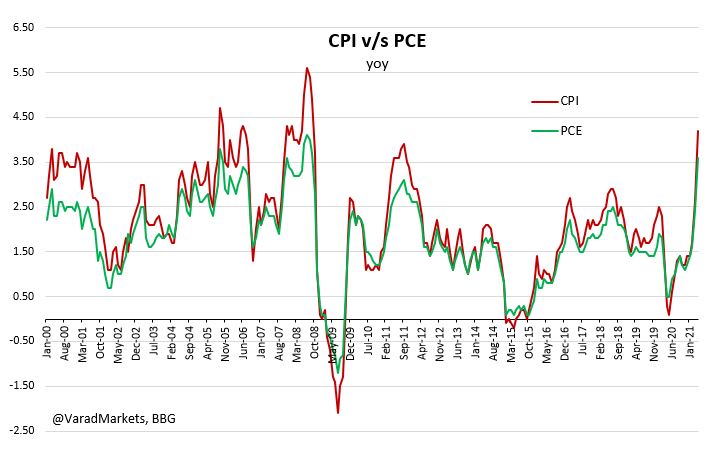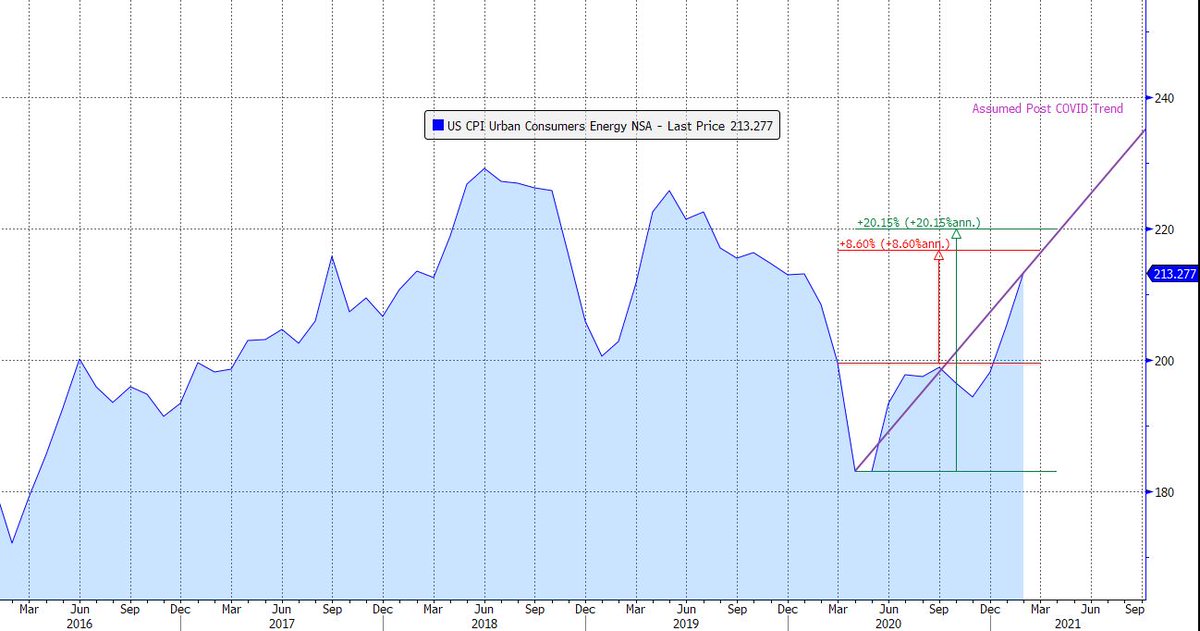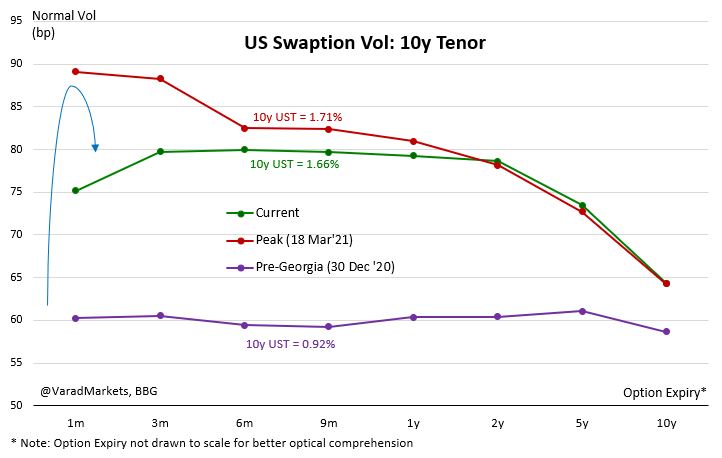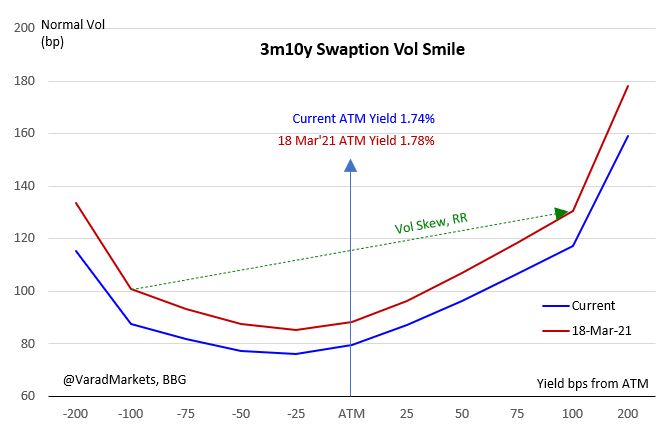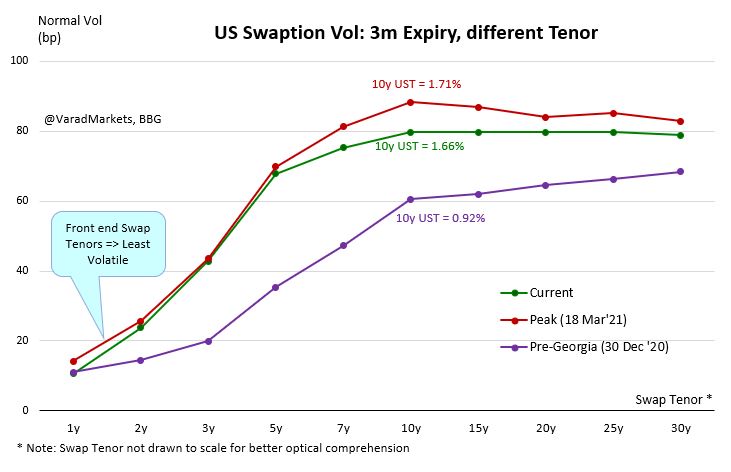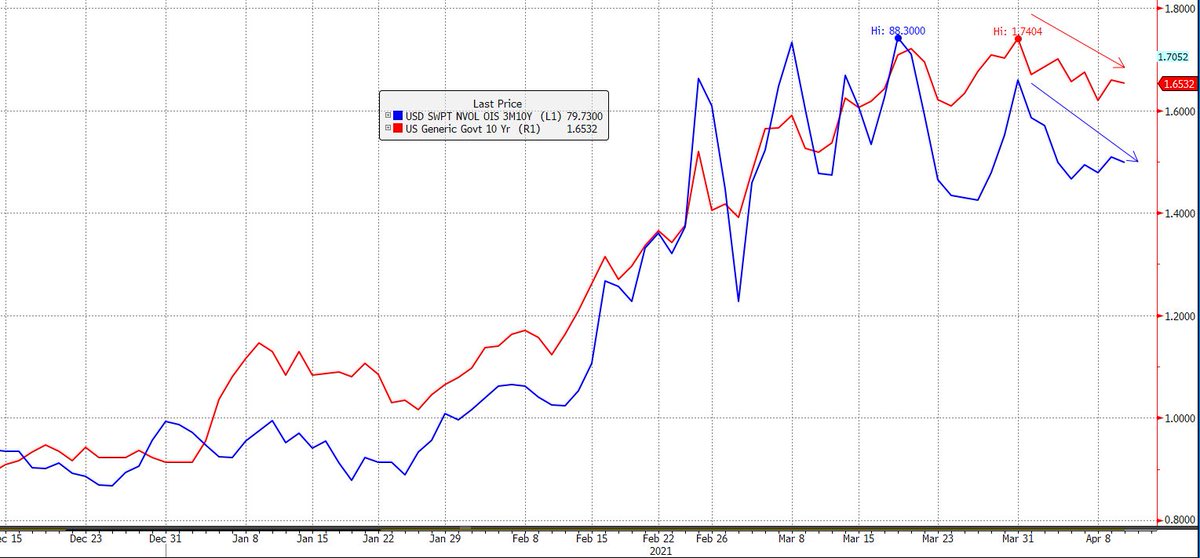
Three largest Asians may end up with early tightness:
▪️ #China: Never went too accommodative to start with + credit tightening
▪️ #India: Inflation surge may force RBI's hands
▪️ #Korea: BoK increasingly hawkish
KRW 2y IRS +17bp since May MPC
INR 5y NDOIS +11bp post CPI yday

▪️ #China: Never went too accommodative to start with + credit tightening
▪️ #India: Inflation surge may force RBI's hands
▪️ #Korea: BoK increasingly hawkish
KRW 2y IRS +17bp since May MPC
INR 5y NDOIS +11bp post CPI yday


BoK's recent hawkishness => rates sell off (higher yld) v/s Received rates positioning:
🔹 'Normalization should not be put off too much'
🔹 'Rapid debt rise may hurt consumption'
🔹 'Should secure policy room for future issues'
🔹 'Inflation may accelerate faster than expected'
🔹 'Normalization should not be put off too much'
🔹 'Rapid debt rise may hurt consumption'
🔹 'Should secure policy room for future issues'
🔹 'Inflation may accelerate faster than expected'
India: Inflation surge
Key to see how RBI interprets the CPI data - transitory or persistent?
Key to see how RBI interprets the CPI data - transitory or persistent?
https://twitter.com/VaradMarkets/status/1404461038087467012?s=20
China: Credit tightening
https://twitter.com/VaradMarkets/status/1404004165097906180?s=20
• • •
Missing some Tweet in this thread? You can try to
force a refresh












